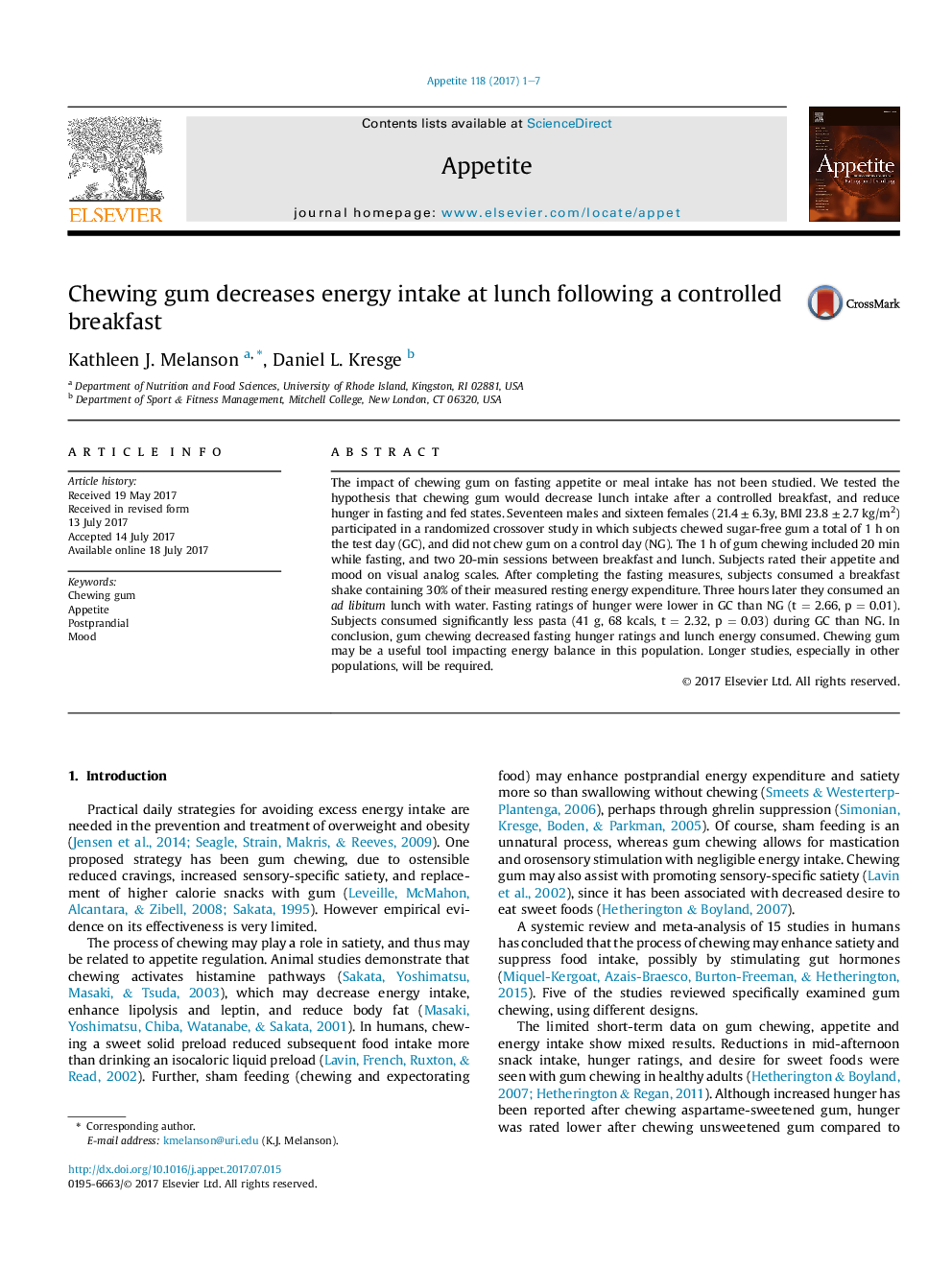| کد مقاله | کد نشریه | سال انتشار | مقاله انگلیسی | نسخه تمام متن |
|---|---|---|---|---|
| 5044216 | 1475362 | 2017 | 7 صفحه PDF | دانلود رایگان |
The impact of chewing gum on fasting appetite or meal intake has not been studied. We tested the hypothesis that chewing gum would decrease lunch intake after a controlled breakfast, and reduce hunger in fasting and fed states. Seventeen males and sixteen females (21.4 ± 6.3y, BMI 23.8 ± 2.7 kg/m2) participated in a randomized crossover study in which subjects chewed sugar-free gum a total of 1 h on the test day (GC), and did not chew gum on a control day (NG). The 1 h of gum chewing included 20 min while fasting, and two 20-min sessions between breakfast and lunch. Subjects rated their appetite and mood on visual analog scales. After completing the fasting measures, subjects consumed a breakfast shake containing 30% of their measured resting energy expenditure. Three hours later they consumed an ad libitum lunch with water. Fasting ratings of hunger were lower in GC than NG (t = 2.66, p = 0.01). Subjects consumed significantly less pasta (41 g, 68 kcals, t = 2.32, p = 0.03) during GC than NG. In conclusion, gum chewing decreased fasting hunger ratings and lunch energy consumed. Chewing gum may be a useful tool impacting energy balance in this population. Longer studies, especially in other populations, will be required.
Journal: Appetite - Volume 118, 1 November 2017, Pages 1-7
